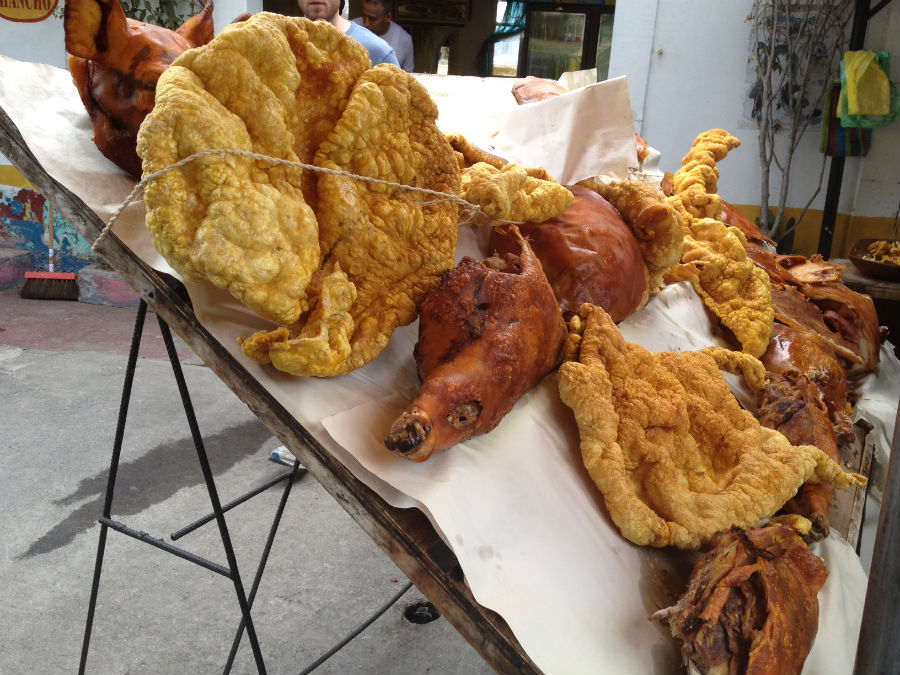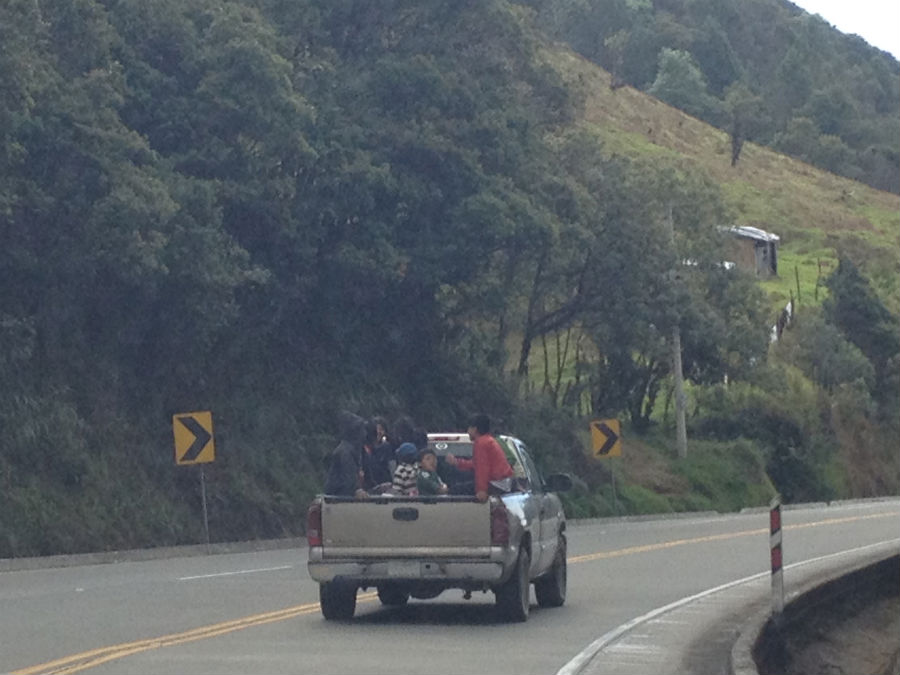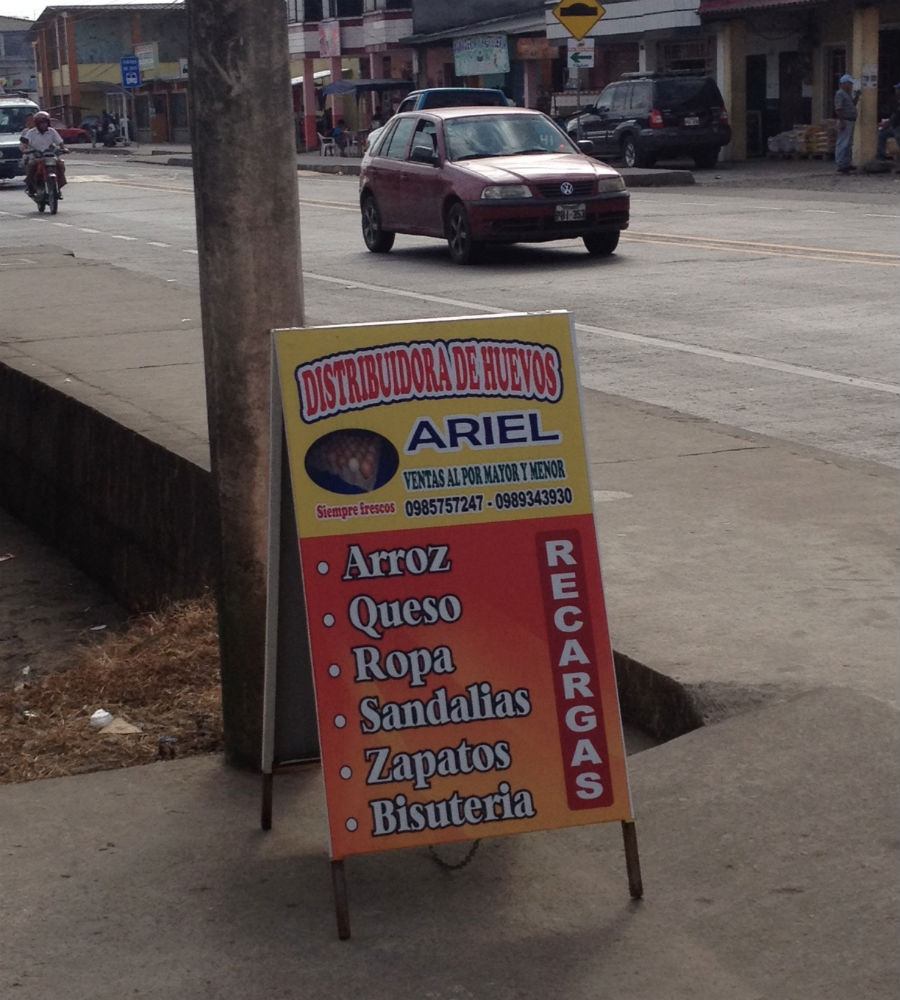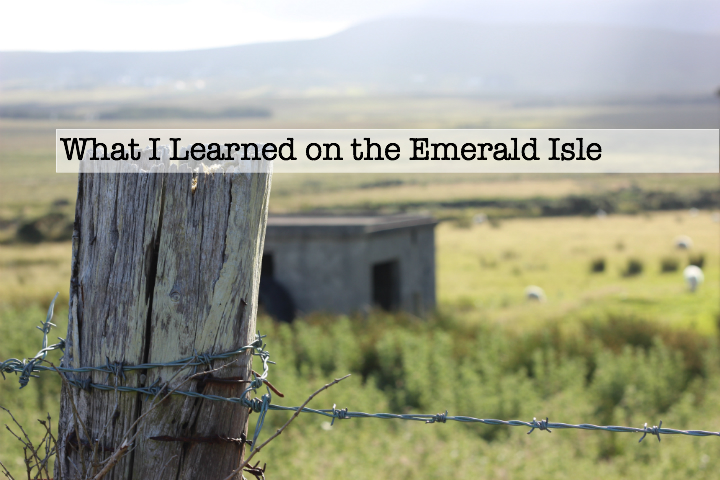“There are no foreign lands. It is the traveler only who is foreign.”
– Robert Louis Stevenson
As my time in Ecuador comes to a close, I can’t help but reflect on all the little privileges and daily gifts I take for granted back at home. Don’t get me wrong, I’ve had an incredible time here. But I’m burned out. Tired. And looking forward to re-enjoying those things I’ve missed back at home.
Wait, Why are You in Ecuador?
I don’t think I’ve announced it yet on GiveLiveExplore, so here it is: I’m here living out the next book in the Tales Of series: Tales of Ecuador. Because Tales of Iceland has done well enough, friend and author Stephen Markley and I have decided to work together on another book.
We’ve been here just over three weeks, spending a lot of time in the capital Quito, but also exploring the unique and hidden corners of this wonderful country. We’ve met fascinating people, learned so much about a place we previously knew next to nothing about, and of course, we’ve had some interesting adventures.

Iceland and Ecuador share incredibly diverse landscapes (like breathtaking volcanoes, craters, mountains, and lakes), but this is about where their similarities end:
- Iceland is regularly noted as one of the safest and happiest countries in the world; Ecuador, not so much.
- Iceland is incredibly expensive, with a hostel dorm bed running upwards of $50/night; In Ecuador, a bed for over $12 feels like a rip-off.
- It’s easy to communicate with most Icelanders in English; my intermediate Spanglish is barely enough to get by in Ecuador.
- Iceland is a first world country; Ecuador is a developing nation.
I could go on and on.
This isn’t my first time in a developing country like Ecuador, but this is certainly the longest I’ve spent in such a place. In fact, this is the 2nd longest consecutive time I’ve spent in any single country outside the United States (after my month in Serbia last year).
And since I’ve spent most of my life not in a developing country, I find myself thinking about all the things I take for granted and should appreciate more back at home.

Culture Shock in Action
When traveling through any unfamiliar place, your concept of reality often becomes shocked and frazzled. This is especially magnified when traveling around a place so extremely unlike home. This disorientation is sometimes referred to as Culture Shock. At least with me, culture shock usually sets off a chain of two alarming realizations:
First, you gain a fresh (and sometimes frustrating) perspective on seemingly familiar things. Things like crossing a street, talking to a stranger, or ordering food become new again, and often infinitely more difficult to execute. You feel like an infant again. Trying to constantly open doors inward when they actually open outward. Assuming traffic laws are universally obeyed, when they clearly are not. Attempting to drink water from a faucet because for your whole life, you’ve been able to drink water from a faucet, but now you’re being advised otherwise (and this is if the place actually has running water, which fortunately most places in Ecuador do). These are just some examples.
Then, you realize how easily you take these seemingly familiar things for granted at home. Sometimes these things are great, so you’re happy to take advantage of them. Take public transit, for example. In London, taking the Tube a few stops can run you almost $7 per trip. Contrast that to Quito, where every bus ride is $0.25, regardless of how far you’re going! Or in Belgrade, Serbia, where practically no one pays for public transit! (I’ve even tried to pay, but I find it more difficult than not paying).
But often times, you realize how great some things are back at home. And hopefully, you vow to never take them for granted again.
13 or 14 Things You’ll Probably Take for Granted Today
Since most readers of this blog live in first world countries like the United States, UK, or mainland Europe, I hope to offer up some perspective while on the ground in Ecuador.
Please don’t confuse this with a holier than thou speech, or a display on who’s traveled better/longer/rougher. Because frankly, there are plenty of you who have traveled wider and further than I. Some of you have have served 2+ years in the Peace Corps in rural Africa. Others of you are “Third Culture Kids,” having lives that span continents. Some of you are Army/Navy/Air Force brats, living everywhere and no where at the same time. Two of my Icelandic friends just spent the summer volunteering their medical expertise in Tanzania.
I just think it’s a good practice to reflect on the things we take for granted, because the gifts we enjoy at home are not gifts that are universally granted across the world. This is certainly something I’ve appreciated and contemplated a lot since landing in Ecuador.
So here are a few things I know I take for granted living in the United States. Perhaps these are things you’re taking for granted today as well.
1. Drinkable tap water. This is easily the most noticeable one for me. Brushing your teeth with tap water instead of bottled water. Taking a drink of water from a public water fountain. These are things I certainly take for granted back at home.
2. Eating fresh fruit and vegetables with peace of mind. Of course, you can find fruits and vegetables in Ecuador. But I’ve mostly been eating those with a peel (as us traveling gringos are advised to do). This includes mostly bananas, oranges, avocados, and pineapples. Maybe I’m being too cautious. But one bad run-in with nasty intestinal bacteria in Greece will make you cautious enough for a lifetime.
I miss raw spinach, tomatoes, blueberries, peppers, and carrots. Most importantly, I miss not hesitating before eating them.
3. Running (or walking) without gasping for oxygen. At an altitude of 9,350 feet, Quito touts itself as the 2nd highest capital in the world (behind La Paz, Bolivia). It makes me appreciate being able to function normally without feeling like a Biggest Loser contestant.

4. Regular bowel movements. Without getting too graphic, let’s just say you can’t fully appreciate how beautiful routine bowel movements are until you’re chugging coffee trying to recreate them. It’s tough to stay regular while traveling at breakneck speed, sleeping in different beds almost every night, and stuffing your face with more fried food, carbohydrates, and cheese than you’re accustomed to consuming. [Related: I’m getting fat.]


5. Generally obeyed traffic laws. In Ecuador, Red means Stop (unless you don’t want to stop). Green means Go (but you probably should honk just in case the driver at the red light doesn’t feel like stopping). “Do Not Pass” signs are just roadside decorations. Likewise with yellow and white traffic lines.
Ecuadorians are lovely people, but put them in a car or bus and they turn into maniacs with no regard for human life.

6. Non-corrupt cops. I’m not saying all police in first world countries aren’t corrupt, but until Ecuador, I’d never had to bribe a police officer. I also generally feel comfortable walking up to a policeman for help in the US. I don’t feel that way here. Maybe this fear isn’t warranted. Maybe it’s more about the language barrier. Regardless, I appreciate that as a law-abiding citizen, I can generally trust police to be fair and helpful in the US.
7. Being helplessly taken advantage of. In Ecuador, being white and knowing poquito español means you sometimes pay more for things. We joke that we’re occasionally charged a discretional “gringo tax.” This sometimes means we pay a flat fee in a taxi because the meter is “broken.” Or a typical $2.00 almuerzo (lunch) mysteriously becomes $2.50. It’s less about the $0.50, more about the principle of feeling helpless and taken advantage of without any way to challenge and rectify the situation.
8. Not having to negotiate for most purchases. There’s a lot of mental energy spent in negotiating for anything from beers to bribes. Especially at open markets, many things have a price, but that price is generally negotiable. Life is sometimes easier when something has a set price. You can choose to purchase it. Or not.

9. The ease of traveling and living in the United States as a United States citizen. The United States does not make it easy to enter its borders if you’re a foreigner. Prohibitive travel costs aside, it’s not cheap or easy to obtain even a tourist visa for the US. Plus, going through customs as a non-American can be a humiliating and degrading experience. Even for a well known celebrity-politician from America-friendly Iceland. Take Reykjavík mayor Jón Gnarr’s experience several days ago:

10. Vaccinations from serious diseases. I visited the Cleveland Clinic for a travel consultation before heading to Ecuador. In a matter of five minutes and two shots, I was instantly immune from two serious ailments: Hepatitis B and Yellow Fever. I suddenly realized how much I vastly under appreciate vaccinations — previously, they were things on a checklist I needed to complete before heading to college.
But seriously, can we take a minute to marvel at the magic of vaccinations? Getting a vaccination is like leveling up and becoming a superhuman.
11. Not worrying about breaking a leg while walking down a busy sidewalk. Walking around Mariscal Foch, Quito’s most tourist-friendly collection of restaurants and bars, is like playing Indiana Jones. I appreciate that they’re trying to improve the aesthetics of the neighborhood, but it seems as though they started construction simultaneously everywhere, leaving everything unfinished and extremely dangerous. Wouldn’t it make sense to finish one hole before starting a new one? Or at the very least, put some idiot-proof protection around them so idiots like me don’t fall inside. The few Peligro signs feel like an afterthought. And certainly won’t stop me from falling in. We’re so lawsuit-happy in the US, you’d never see one of these exposed holes back home.


12. Respect for quiet, especially during typical sleeping hours. City-dwelling aside, I feel like there’s a general appreciation for quiet time during sleeping hours back home that seems to be missing in Ecuador. We’ve been woken up by a marching band at 6am. Kept awake by a local indigenous party until 5am. Dueling roosters between 3 and 10am are pretty common. Stray dogs barking throughout the night are the least of my bothers. I’ve started to memorize the melodic sequence of a car alarms. It basically feels like I haven’t slept in 3 weeks.
13. Being able to communicate clearly, effectively, and deeply. I know enough Spanish to generally communicate basic questions and desires, and sometimes enough to understand the answer to those questions and desires. But it’s tough to communicate complex thoughts. It’s even harder to understand a human being on a deeper level when you don’t speak the same language. I think I’ve become pretty good at knowing who I can trust based on facial expressions and general aura. But it’s almost impossible to really understand a stranger unless you can communicate with one another. This miscommunication seems to be the source of most cultural problems.
14. What have I missed? What have you taken for granted while traveling to a developing nation (or even a weird first world country)? Let me know in the comments below.









